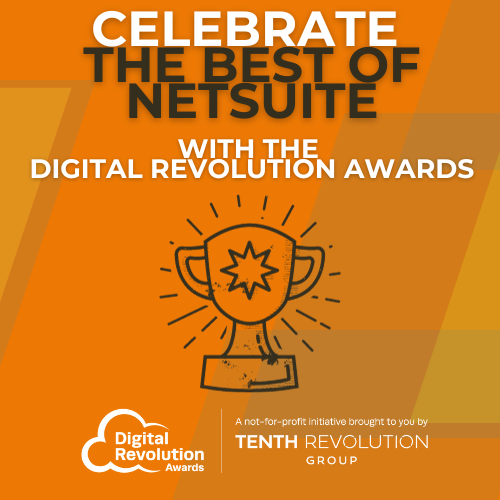Why NetSuite specialists switch jobs

Trying to keep the wheels of digital transformation turning when the world is up against the ongoing tech talent shortage is proving a challenge for ERP partners and customers alike.
Already the world’s number one cloud ERP platform, NetSuite’s user base is growing as businesses of all sizes look to modernize their processes and build business resiliency. The company’s fourth-quarter earnings showed revenue for NetSuite ERP Cloud up 30% in FY22. But despite the significant acceleration we’re seeing in digitization, skills shortages in the sector are stalling progress for many organizations.
In our most recent report on the NetSuite ecosystem, we found that half of hiring managers believe there’s a skills gap in the NetSuite community—and 56% of those respondents say that the skills gap has increased in the last 12 months. Hiring managers also told us that it takes four months on average to find a new NetSuite hire.
The biggest challenges businesses face in closing their own digital skills gaps were cited as follows:
- There’s a lack of qualified/experienced candidates in the marketplace (63%)
- Finding the right talent is time-consuming (51%)
- There’s too much competition for talent (46%)
Rebecca Dyas, Senior Director of Operations at the New Teacher Center and NetSuite user, shared her experience recruiting for NetSuite talent.
“NetSuite has expanded quickly, with many modules added, making it difficult to find people who work with some of them,” she said. “Finding expertise can be challenging, too. Unfortunately, it’s all too common to find someone with a multitude of experience in one aspect, but zero knowledge of other modules. That lack of knowledge has put us off from bringing in a full-time NetSuite Admin in the past. I imagine it’s probably going to get worse.”
Clearly, with the use of technologies like NetSuite on the up, and a talent pool too small to meet the demand for its services, finding and retaining ERP professionals is going to be a top priority for businesses in the coming year. But in a wildly competitive, candidate-led market where what professionals want from their careers is rapidly changing, that’s no easy feat.
Many workers are already eyeing their next move, with almost half (44%) of permanent employees who responded to our survey not expecting to be working for their current employer in the coming year.
- 15% are actively looking for a new role
- 8% expect to leave but aren’t currently looking
- 21% are unsure if they will stay or go
The number of NetSuite professionals expecting to remain with their current employer dropped by 11% compared to last year’s report, meaning more professionals than ever are planning on a career change.
So what can organizations do to hold onto their best talent? Well, you know what they say: knowledge is power. So understanding what NetSuite professionals want and why they leave jobs is the first step to making the kind of changes that will make them stay.
Why NetSuite professionals are leaving jobs
What drives NetSuite employees to leave their employer and seek new opportunities elsewhere? Here are the top reasons our survey respondents told us would compel them to make a move.
1. Lack of salary increase (44%)
Tied for the top spot, NetSuite professionals cited a lack of salary increase and a need for new challenges as the primary reasons they would leave a job.
A desire for a higher salary coming top of the list isn’t a shock, especially with living costs rising worldwide, and a spike in what companies are willing to pay in the battle to win hard-to-find talent away from their competitors. Of those respondents who had changed jobs in the past year, 72% said their salary increased—with the average rise coming in at 23%—indicating that the easiest way to get a bigger paycheck is to move on.
1. A need for new challenges (44%)
But a need for new challenges is clearly also a crucial factor when it comes to job satisfaction. NetSuite is a fast-growing platform, with many new modules emerging in recent years; it’s all too easy for professionals who aren’t getting their hands on the latest developments to feel like they’re lagging behind. Working on the same old projects can make tech pros feel stagnant and disengaged.
2. Lack of career and promotional prospects (42%)
It’s not just new technical challenges that NetSuite professionals crave. They’re also looking for professional development and progression. Given the rate of new talent entering the tech industry, it’s wise to upskill existing staff, developing the IT professionals you have into leaders and mentors for others. However, many organizations still fail to provide a clear career pathway for their NetSuite employees, and that’s a big sticking point for many.
2. Pursuit of better work-life balance (42%)
Ranking joint-second with a lack of progression, the desire for a better work-life balance is another major driver behind career moves, with 42% of our respondents citing it as a motivation to change jobs.
Remote and flexible work enjoyed a real boom in prevalence due to the pandemic. Still, as we get to grips with the new normal, some businesses are backsliding on their progressive workplace policies. Many workers who’ve enjoyed the benefits that remote and flexible working can bring are understandably reluctant to give them up, and they aren’t afraid to leave employers that stick to outdated practices.
3. Lack of leadership and vision 40%
Today’s professionals, especially those from younger generations, want to work for companies that have a purpose. They want to be part of a team that is innovating, changing the status quo, and making the world a better place through its products or services. Unfortunately, as this stat shows, businesses without a clear vision risk employees becoming disengaged, and will likely struggle to attract new talent.
What attracts NetSuite professionals to new roles
The above reasons are just a few of the issues that drive NetSuite professionals to throw in the towel and seek a new role. Businesses should keep an open dialogue with their NetSuite team and make sure that they’re as satisfied as possible to reduce turnover, but some employees are inevitably going to move on regardless.
However, the good news for employers in the market for NetSuite candidates is that we also spoke to professionals about what kind of perks would tempt them into accepting a role.
Here are some of the top benefits NetSuite professionals desire in a new job to help you create the most attractive package.
Home working (53%)
The ability to work remotely was the top benefit that would convince NetSuite talent to accept a job offer. Given the importance our respondents placed on work-life balance, this is no surprise: offering remote work is fast becoming less of a sought-after perk and more of an expectation from candidates in the tech industry.
Freedom around when and where employees work is an extremely persuasive benefit to have in your package. In fact, the ability to work remotely was the top reason why some respondents accepted a new position with a lower salary. Over a third (36%) of those who had taken a pay cut when they changed roles did so because the new role was remote, with the offer of flexible working not far behind (29%).
Bonus (43%)
Regular bonuses came second on the list of head-turning perks for NetSuite professionals. Typically offered by large organizations or partner firms, monthly or annual bonuses can go a long way toward sweetening the deal for candidates. With competition for talent increasingly fierce, we’re likely to see cash rewards like signing and referral bonuses become more widely offered by smaller companies as a result.
Four weeks or more paid time off (41%)
Particularly appealing in the North American market, the offer of paid time off is a winner for attracting staff. As professionals look to achieve a better work-life balance, paid annual leave is a great way to appeal to candidates and show your investment in your employee’s wellbeing.
Retirement savings plan, 401(k) match, or pension contributions (24%)
Many companies today offer a pension or 401(k) to help employees save for retirement. Some also operate a matching program to give that incentive an extra boost, kicking in money to complement employees’ contributions.
According to the US Bureau of Labor Statistics, just over half (56%) of companies provide a 401(k) plan, with about half of these companies offering a match. The average 401(k) match offered by employers is around 3% of the employee’s salary. Of course, there are limits to how much you can chip into an employee’s retirement pot, both in terms of federal regulations and your budget, but knowing those averages gives you an idea of how you can mark your business as a great employer with a robust 401(k) offering.
Health insurance (23%)
With 50% of Americans relying on employer-sponsored health insurance, offering a good healthcare plan is a guaranteed way to attract candidates.
Even in countries with nationalized healthcare, the offer of alternatives can appeal to candidates. As employees and businesses come around to the importance of health and wellbeing in the workplace, offering private healthcare options as part of your benefits package provides practical support for employees and demonstrates your investment in them.
If you’re looking to go beyond the bare minimum, dental treatment, optical care, digital healthcare services, and mental health support are among the benefits candidates are keen to see from employers today.
Understanding what NetSuite professionals want, and what drives them out, gives you a good baseline on which to benchmark your current employee experience and the package you’re putting in front of potential candidates. Putting in some time and seeing where you can go further and position yourself as an employer of choice will make a big difference in your efforts to recruit and retain the best NetSuite talent on the market today.




